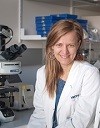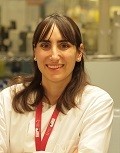Editorial Board
Associate Editors
 Ivan Alić, DVM, PhD, University of Zagreb, Croatia
Ivan Alić, DVM, PhD, University of Zagreb, Croatia
Ivan Alić obtained his PhD at University of Zagreb, Croatia, in the field of neuroscience. His focus was embryonic development and transplantation of Neural Stem Cells into the mouse brain affected by stroke. During his postdoc in Prof Nizetic group at LKC School of Medicine, NTU, Singapore (2016-2019) as well as at Blizard Institute, Queen Mary University of London, London, UK (2019-2021) his focus was Down Syndrome and Alzheimer Pathology. In 2021 he was appointed as an Assistant Professor in Anatomy, Histology and Embryology and established his research group in the field of Neuroscience. Since 2022, he is an Honorary Research Fellow at Blizard Institute, Queen Mary University of London, UK. In 2022 he was awarded by Adris foundation. He is a Representative of Young Generation of Veterinary Anatomists.
KEYWORDS: iPSCs, organoids, Down Syndrome, human brain, embryonic development, cell morphology, microscopy
 Juan Fafián-Labora, PhD, University of A Coruña, Spain
Juan Fafián-Labora, PhD, University of A Coruña, Spain
Dr Juan Fafián-Labora is a Principal Investigator and Assistant Professor at University of A Coruña (Spain). He got a PhD in Health Sciences from the University of A Coruña. His thesis project was based on the study of the influence of aging on the therapeutic properties of mesenchymal stem cells. Then, he joined at the Blizard Institute, Queen Mary University of London (UK) as a postoctoral researcher. His research focused on the search for the molecular mechanism involved in intercellular communication between senescent cells, showing for the first time that extracellular vesicles are part of the secretome-associated senescence phenotype (SASP) and that extracellular vesicles are involved in the rejuvenation process with high therapeutic potential for the treatment of age-associated diseases. Later, he returned to the University of A Coruña (Spain) to develop his research career between the Interdisciplinary Research Center of Chemistry and Biology (CICA) and the Institute for Biomedical Research of A Coruña (INIBIC), where he started to establish his independent research based on his knowledge on extracellular vesicles, cellular senescence and ferroptosis for the development of senopharmaceuticals (senolytics and senomorphics) for the treatment of age-associated diseases, the rare disease progeria and cancer.
Keywords: ageing, cellular senescence, ferroptosis, extracellular vesicles, cancer
Joanna Fox, PhD, University of Leicester UK

Dr Joanna Fox is a Lecturer in Molecular and Cellular Biology at the Leicester Institute of Structural and Chemical Biology at the University of Leicester. She obtained her PhD in Molecular Pharmacology at the Institute of Cancer Research, London, UK working on the pharmacological inhibition of the molecular chaperone HSP90. She continued her career at the University of Oxford, UK where she developed her interest in the regulation of apoptotic cell death, specifically how activation of BAK, a mitochondrial pro-apoptotic regulator is controlled and whether these regulatory pathways can be targeted for the treatment of cancer. She next moved to the MRC Toxicology Unit, University of Cambridge where she extended her research into the regulation of apoptotic cell death, specifically the determination by electron microscopy of the molecular architecture of Caspase-8 containing complexes. In 2018 she established her independent research group at the Leicester Institute of Structural and Chemical Biology at the University of Leicester. Her current research focuses on determining the composition and structural architecture of the protein complexes that regulate commitment to mitochondrial cell death using a combination of protein crystallography, NMR, computational biology and cryo-EM.
KEYWORDS: cell death, cancer, structural biology
Carlo Ganini, MD, University of Rome Tor Vergata, Italy
 Dr Ganini is a Clinical Pathologist graduated from the University of Pavia, Italy. His clinical research training, at the Oncology Unit of San Matteo University Hospital in Pavia, was mainly based on clinical trials of genitourinary and liver malignancies. Afterwards he moved to the University of Cambridge Toxicology Unit where he received his training in basic cell biology and biochemistry, before joining the TOR Center of Excellence at the University of Rome Tor Vergata, where he is contributing with his clinical and basic science expertise to a vast international effort for the establishment of a database of a multi-omics approach on cancer specimens.
Dr Ganini is a Clinical Pathologist graduated from the University of Pavia, Italy. His clinical research training, at the Oncology Unit of San Matteo University Hospital in Pavia, was mainly based on clinical trials of genitourinary and liver malignancies. Afterwards he moved to the University of Cambridge Toxicology Unit where he received his training in basic cell biology and biochemistry, before joining the TOR Center of Excellence at the University of Rome Tor Vergata, where he is contributing with his clinical and basic science expertise to a vast international effort for the establishment of a database of a multi-omics approach on cancer specimens.
KEYWORDS: cancer biology, structural biology, cancer omics, kidney cancer, HCC
Ana Janic, PhD, Pompeu Fabra University, Barcelona, Spain
 - Dr Janic is a Tenure-Track Professor at the Experimental and Health Sciences Department at Pompeu Fabra University (DCEXS-UPF). She studied Molecular Biology and Physiology at the University of Belgrade and completed her master research studies at European Molecular Biology Laboratories (EMBL) in Hamburg, Germany. She obtained PhD in Biomedicine at Institute for Research in Biomedicine (IRB- Barcelona) in 2011. During her PhD, she studied the molecular basis of cancer using Drosophila as a model organism. After completing her PhD, she moved to Andreas Strasser laboratory at Walter and Eliza Hall Institute, Australia. Her studies helped to uncover how p53 prevents the development of cancer, including identifying DNA repair as an essential process for p53-mediated tumor suppression. In 2018 she established her independent research group at DCEXS-UPF and her research program is dedicated to understanding the complex p53 tumour suppression transcriptional network in different tissues and in the context of distinct oncogenic drivers.
- Dr Janic is a Tenure-Track Professor at the Experimental and Health Sciences Department at Pompeu Fabra University (DCEXS-UPF). She studied Molecular Biology and Physiology at the University of Belgrade and completed her master research studies at European Molecular Biology Laboratories (EMBL) in Hamburg, Germany. She obtained PhD in Biomedicine at Institute for Research in Biomedicine (IRB- Barcelona) in 2011. During her PhD, she studied the molecular basis of cancer using Drosophila as a model organism. After completing her PhD, she moved to Andreas Strasser laboratory at Walter and Eliza Hall Institute, Australia. Her studies helped to uncover how p53 prevents the development of cancer, including identifying DNA repair as an essential process for p53-mediated tumor suppression. In 2018 she established her independent research group at DCEXS-UPF and her research program is dedicated to understanding the complex p53 tumour suppression transcriptional network in different tissues and in the context of distinct oncogenic drivers.
Keywords: cancer, p53, DNA repair, mouse models, Drosophila
Silvia von Karstedt, PhD, University of Cologne, Germany
 Dr. Silvia von Karstedt is a cell biologist heading the research group “Cell Death and Cancer Evolution” at the Medical Faculty of the University of Cologne. She studied Biology at the University of Hamburg and Heidelberg and completed her Diploma (Master) studies at the German Cancer Research Center (Deutsches Krebsforschungszentrum-DKFZ). Afterwards she completed her PhD at Imperial College London, UK in 2013 in the laboratory of Prof. Henning Walczak investigating cancer-promoting signaling of death receptors in KRAS-driven cancers. After staying on for a brief postdoctoral period at the UCL Cancer Institute, London, she briefly worked with Prof. Julian Downward at the Francis Crick Institute, London, UK between 2016 and 2017 focusing on KRAS-driven lung cancer immunology. After securing a Max Eder Junior Research Group by the German Cancer Aid (Deutsche Krebshilfe), she set up her independent research group at the Medical Faculty of the University of Cologne in September 2017. Her current research studies how constitutive selective pressure during early tumor evolution is shaped by regulated cell death. Herein, a particular focus lies in understanding the physiological function of ferroptosis in cancer.
Dr. Silvia von Karstedt is a cell biologist heading the research group “Cell Death and Cancer Evolution” at the Medical Faculty of the University of Cologne. She studied Biology at the University of Hamburg and Heidelberg and completed her Diploma (Master) studies at the German Cancer Research Center (Deutsches Krebsforschungszentrum-DKFZ). Afterwards she completed her PhD at Imperial College London, UK in 2013 in the laboratory of Prof. Henning Walczak investigating cancer-promoting signaling of death receptors in KRAS-driven cancers. After staying on for a brief postdoctoral period at the UCL Cancer Institute, London, she briefly worked with Prof. Julian Downward at the Francis Crick Institute, London, UK between 2016 and 2017 focusing on KRAS-driven lung cancer immunology. After securing a Max Eder Junior Research Group by the German Cancer Aid (Deutsche Krebshilfe), she set up her independent research group at the Medical Faculty of the University of Cologne in September 2017. Her current research studies how constitutive selective pressure during early tumor evolution is shaped by regulated cell death. Herein, a particular focus lies in understanding the physiological function of ferroptosis in cancer.
KEYWORDS: lung cancer, pancreatic cancer, cell death, ferroptosis, necroptosis, cancer immunology
Richard Killick, D.Phil. King's College London, UK
 Dr Richard Killick is a molecular neurobiologist, principal investigator and lecturer at King's College London. Dr. Killick received his D.Phil. from Sussex University in 1994 following his investigations of molecular components forming the avian and mammalian auditory systems. He continued his career as a postdoctoral investigator at Sussex examining the developmental neurobiology of genes and proteins involved in Alzheimer's disease, within the inner ear. In 1999 he moved to King's College London, joining the Neuroscience department to further his investigations into the underlying cause of Alzheimer's disease and other neurodegenerative/neurological disorders. During this time his attention focused on cellular signaling pathways that underpin the neuropathology of Alzheimer's disease, particularly the Wingless/Wnt, Notch and Insulin pathways. In 2010 he established his own group at KCL and his current focus is on the role of Wnt signaling in Alzheimer's disease neuropathology, in particular b-amyloid driven synaptotoxicity. He also investigates the mysterious but important role of p53 in b-amyloid synaptotoxic mechanisms. His group are based in the purpose-built Maurice Wohl Clinical Neuroscience Institute, the hub of neuroscience across King’s College London and a part of the UK Dementia Research Institute. There he collaborates closely with a range of other neuroscientists, clinicians and structural biologists and is involved in biomarker and drug discovery programs.
Dr Richard Killick is a molecular neurobiologist, principal investigator and lecturer at King's College London. Dr. Killick received his D.Phil. from Sussex University in 1994 following his investigations of molecular components forming the avian and mammalian auditory systems. He continued his career as a postdoctoral investigator at Sussex examining the developmental neurobiology of genes and proteins involved in Alzheimer's disease, within the inner ear. In 1999 he moved to King's College London, joining the Neuroscience department to further his investigations into the underlying cause of Alzheimer's disease and other neurodegenerative/neurological disorders. During this time his attention focused on cellular signaling pathways that underpin the neuropathology of Alzheimer's disease, particularly the Wingless/Wnt, Notch and Insulin pathways. In 2010 he established his own group at KCL and his current focus is on the role of Wnt signaling in Alzheimer's disease neuropathology, in particular b-amyloid driven synaptotoxicity. He also investigates the mysterious but important role of p53 in b-amyloid synaptotoxic mechanisms. His group are based in the purpose-built Maurice Wohl Clinical Neuroscience Institute, the hub of neuroscience across King’s College London and a part of the UK Dementia Research Institute. There he collaborates closely with a range of other neuroscientists, clinicians and structural biologists and is involved in biomarker and drug discovery programs.
KEYWORDS: Dickkof-1, Wnt, amyloid, Alzheimer’s, synaptotoxicity, p53
Inna N. Lavrik, PhD, Otto von Guericke University, Germany
 Professor Lavrik heads the Translational Inflammation Research laboratory at the Medical Faculty of the Otto von Guericke University in Magdeburg. She completed her PhD studies at the Lomonosov Moscow State University and the Max Planck Institute of Molecular Genetics in Berlin, Germany. In 2000, she became a Postdoctoral Fellow investigating death receptor signaling networks in the Division of Immunogenetics at the German Cancer Research Center headed by Prof. Peter H. Krammer. In 2008, she joined Bioquant Systems Biology Center in Heidelberg as a group leader focusing on bio-computational studies of apoptosis. In 2012, she was appointed Professor in the Medical Faculty of the Otto von Guericke University in Magdeburg, Germany. Her current research includes the molecular mechanisms governing the function of macromolecular complexes in death receptor networks, their posttranslational modifications, and the computational modeling of apoptosis pathways.
Professor Lavrik heads the Translational Inflammation Research laboratory at the Medical Faculty of the Otto von Guericke University in Magdeburg. She completed her PhD studies at the Lomonosov Moscow State University and the Max Planck Institute of Molecular Genetics in Berlin, Germany. In 2000, she became a Postdoctoral Fellow investigating death receptor signaling networks in the Division of Immunogenetics at the German Cancer Research Center headed by Prof. Peter H. Krammer. In 2008, she joined Bioquant Systems Biology Center in Heidelberg as a group leader focusing on bio-computational studies of apoptosis. In 2012, she was appointed Professor in the Medical Faculty of the Otto von Guericke University in Magdeburg, Germany. Her current research includes the molecular mechanisms governing the function of macromolecular complexes in death receptor networks, their posttranslational modifications, and the computational modeling of apoptosis pathways.
KEYWORDS: death receptors, DED proteins, caspases, systems biology
Luigi Leanza, PhD, University of Padua, Italy
 Luigi Leanza is an Associate Professor of Biochemistry at the Department of Biology of the University of Padua, Italy. In 2009, Luigi received his PhD in Bioscience at the University of Padua, where he was first awarded (in 2011) a Young Researcher Postdoctoral Fellowship and was later promoted (in 2013) to a Senior Postdoc position. During his postdoc in Prof. I. Szabò’s Lab, Luigi contributed to demonstrate that the pharmacological targeting of the mitochondrial potassium channel Kv1.3 is a novel winning strategy to fight several types of tumors. Since 2016, Luigi heads the metabolism and cell signaling lab at the Department of Biology of the University of Padua. His research is focused in understanding the role of metabolism and inter-organelle communication in tuning intracellular cell signaling during cancer development and progression. In this context, Luigi has recently dissected the molecular cascade of the Mito-Wnt axis, that correlate mitochondrial ATP synthesis and Wnt signaling modulation, an important pathway involved in embryonic development, genetic diseases and tumor progression.
Luigi Leanza is an Associate Professor of Biochemistry at the Department of Biology of the University of Padua, Italy. In 2009, Luigi received his PhD in Bioscience at the University of Padua, where he was first awarded (in 2011) a Young Researcher Postdoctoral Fellowship and was later promoted (in 2013) to a Senior Postdoc position. During his postdoc in Prof. I. Szabò’s Lab, Luigi contributed to demonstrate that the pharmacological targeting of the mitochondrial potassium channel Kv1.3 is a novel winning strategy to fight several types of tumors. Since 2016, Luigi heads the metabolism and cell signaling lab at the Department of Biology of the University of Padua. His research is focused in understanding the role of metabolism and inter-organelle communication in tuning intracellular cell signaling during cancer development and progression. In this context, Luigi has recently dissected the molecular cascade of the Mito-Wnt axis, that correlate mitochondrial ATP synthesis and Wnt signaling modulation, an important pathway involved in embryonic development, genetic diseases and tumor progression.
KEYWORDS: cancer, mitochondria, ion channels, contact sites, metabolism
Maria Victoria Niklison Chirou, MSc, PhD, University of Bath, UK

Maria Victoria Niklison Chirou carried out her PhD studies in Argentina in the field of mitochondrial bioenergetics and reactive oxygen species. In 2009, she joined the MRC in Leicester as a postdoctoral fellow. During this time, Maria Victoria interrogated the role of p53‐family members in tumorigenesis and development and refined her biochemical, cellular and molecular biological skills whilst acquiring additional and highly complementary skills in the generation and analysis of mouse models. In 2014, Maria Victoria was awarded with the prestigious “Paul O’Gorman Research Fellowship” from Children with Cancer UK, in order to start her independent research in the field of pediatric brain tumour. She is member of the editorial board for the molecular biology section of the Encyclopedia Life Science (eLS) and is a scientific advisor panel member for Children with Cancer UK Charity.
KEYWORDS: metabolism, mitochondria, brain tumours, neural differentiation, mouse models
Alessandro Rufini, PhD, University of Leicester, UK
 Alessandro Rufini got his degree at the University of Rome "La Sapienza", before being employed at the Department of Toxicology and Etoxicology at the "Instituto Superiore de Sanita" (ISS), Rome. From 2002 he worked as a PhD student at the University of Rome Tor Vergata. During this time his research focused on the p53-family of transcription factors and their involvement in development. He then joined Prof. Tak W. Mak's laboratory at Campbell Family Institute for Breast Cancer Research, at the Princess Margaret Hospital in Toronto in 2006 as post-doc and continued working on the p53-family. He was appointed to his current position as lecturer in the Department of Cancer Studies at the University of Leicester in 2013. Currently, he leads a research group focused on early detection of disease and exploitation of metabolic pathways for prevention and therapy of colon cancer. He has authored numerous peer reviewed articles and is on the editorial board of Frontiers in Cancer Molecular Targets and Therapeutics, while acting as reviewer for several peer reviewed journals.
Alessandro Rufini got his degree at the University of Rome "La Sapienza", before being employed at the Department of Toxicology and Etoxicology at the "Instituto Superiore de Sanita" (ISS), Rome. From 2002 he worked as a PhD student at the University of Rome Tor Vergata. During this time his research focused on the p53-family of transcription factors and their involvement in development. He then joined Prof. Tak W. Mak's laboratory at Campbell Family Institute for Breast Cancer Research, at the Princess Margaret Hospital in Toronto in 2006 as post-doc and continued working on the p53-family. He was appointed to his current position as lecturer in the Department of Cancer Studies at the University of Leicester in 2013. Currently, he leads a research group focused on early detection of disease and exploitation of metabolic pathways for prevention and therapy of colon cancer. He has authored numerous peer reviewed articles and is on the editorial board of Frontiers in Cancer Molecular Targets and Therapeutics, while acting as reviewer for several peer reviewed journals.
KEYWORDS: colon cancer, mouse models, miR, transcription, cancer biology
Joern Steinert, PhD, University of Nottingham, UK
 Professor Joern Steinert is a neurophysiologist and leads a research group at the School of Life Sciences, University of Nottingham. He studied Biophysics at the Humboldt University Berlin and completed his PhD at King’s College London in Vascular Biology in 2001. In 2002 and 2004 he started postdoctoral positions at the Max Planck Institute Tuebingen and University of Heidelberg, respectively to study neurophysiological aspects of synaptic transmission at the Drosophila neuromuscular junction. Later on, he developed interests in neurophysiological questions addressing aspects of regulating neuronal excitability and synaptic transmission in the mammalian CNS. Between 2006 and 2013 he worked at the MRC Toxicology Unit Leicester as a Senior Investigator Scientist and became MRC Program Leader in 2013. Here, the focus of his work was on redox signalling involving nitric oxide and oxidative stress under neurophysiological and neuropathological conditions. In 2020 he was appointed as an Assistant Professor in Neuroscience and established his research group at Nottingham where he focusses on mechanisms of neuronal dysfunction mediated by oxidative and nitrergic stress and related post-translational modifications.
Professor Joern Steinert is a neurophysiologist and leads a research group at the School of Life Sciences, University of Nottingham. He studied Biophysics at the Humboldt University Berlin and completed his PhD at King’s College London in Vascular Biology in 2001. In 2002 and 2004 he started postdoctoral positions at the Max Planck Institute Tuebingen and University of Heidelberg, respectively to study neurophysiological aspects of synaptic transmission at the Drosophila neuromuscular junction. Later on, he developed interests in neurophysiological questions addressing aspects of regulating neuronal excitability and synaptic transmission in the mammalian CNS. Between 2006 and 2013 he worked at the MRC Toxicology Unit Leicester as a Senior Investigator Scientist and became MRC Program Leader in 2013. Here, the focus of his work was on redox signalling involving nitric oxide and oxidative stress under neurophysiological and neuropathological conditions. In 2020 he was appointed as an Assistant Professor in Neuroscience and established his research group at Nottingham where he focusses on mechanisms of neuronal dysfunction mediated by oxidative and nitrergic stress and related post-translational modifications.
KEYWORDS: synapse and neuronal function, neurodegeneration, Alzheimer’s disease, nitric oxide, post-translational modifications
Anastasis Stephanou, PhD, European University, Nicosia, Cyprus
 Professor Stephanou is currently Deputy Dean (from 2019) and Professor of Cell and Molecular Biology at the European University (EUC), School of Medicine (2014 – present). He is also Director of the School of Medicine Research Center (SMRC). He completed his PhD at the Westminster and Charring Cross Medical School, University of London in 1992. He then did his Post-doctoral training (1992-1995) in the Department of Endocrinology, Cincinnati Children's Hospital, USA, working transcriptional gene regulation. In 1995, he moved as a postdoctoral fellow to the laboratory at the Windeyer Institute of Medical Sciences, UCL where he studied the regulation of heat shock proteins and their cytoprotective properties. During his postdoctoral work, he developed his interest in the Signal Transducers and Activators of Transcription (STATs) factors as key regulators of apoptosis. In 2002, Prof Stephanou became a Lecturer at UCL and in 2005 was promoted to a Reader/Associate Professor. His main research interests are in the field of signal transduction in pathways and mechanisms of cell death (apoptosis), cell cycle regulation and autophagy in disease models such as myocardial infarction injury and also in cancer. Since his move to EUC has also been very active in the field of phyto-chemicals and their anti-cancer effects. He has edited a book entitled "JAK-STAT Pathway in Diseases" and also in 2012 became Editor-In-Chief of the journal JAK-STAT.
Professor Stephanou is currently Deputy Dean (from 2019) and Professor of Cell and Molecular Biology at the European University (EUC), School of Medicine (2014 – present). He is also Director of the School of Medicine Research Center (SMRC). He completed his PhD at the Westminster and Charring Cross Medical School, University of London in 1992. He then did his Post-doctoral training (1992-1995) in the Department of Endocrinology, Cincinnati Children's Hospital, USA, working transcriptional gene regulation. In 1995, he moved as a postdoctoral fellow to the laboratory at the Windeyer Institute of Medical Sciences, UCL where he studied the regulation of heat shock proteins and their cytoprotective properties. During his postdoctoral work, he developed his interest in the Signal Transducers and Activators of Transcription (STATs) factors as key regulators of apoptosis. In 2002, Prof Stephanou became a Lecturer at UCL and in 2005 was promoted to a Reader/Associate Professor. His main research interests are in the field of signal transduction in pathways and mechanisms of cell death (apoptosis), cell cycle regulation and autophagy in disease models such as myocardial infarction injury and also in cancer. Since his move to EUC has also been very active in the field of phyto-chemicals and their anti-cancer effects. He has edited a book entitled "JAK-STAT Pathway in Diseases" and also in 2012 became Editor-In-Chief of the journal JAK-STAT.
KEYWORDS: STAT1 and STAT3, cell death, cell cycle regulation, cardiac ischaemia
Wulf Tonnus, MD, Technische Universität Dresden, Germany Wulf Tonnus is a clinician scientist combining clinical nephrology and cell death research at the University Hospital Dresden. He studied medicine in Kiel (Germany), where he also got in contact with regulated necrosis. Afterwards, he joined the team of Prof. Andreas Linkermann in Dresden, where he works on the contribution of regulated necrosis to the pathogenesis of acute kidney injury and the progression to chronic kidney disease. Special focus is put on mechanisms of ferroptosis regulation and necroinflammation.
Wulf Tonnus is a clinician scientist combining clinical nephrology and cell death research at the University Hospital Dresden. He studied medicine in Kiel (Germany), where he also got in contact with regulated necrosis. Afterwards, he joined the team of Prof. Andreas Linkermann in Dresden, where he works on the contribution of regulated necrosis to the pathogenesis of acute kidney injury and the progression to chronic kidney disease. Special focus is put on mechanisms of ferroptosis regulation and necroinflammation.
Keywords: Ferroptosis, kidney injury, necroinflammation, ischemia
Meike Vogler, PhD, Goethe-University, Germany
 Dr Meike Vogler is a human biologist heading a lab at the Institute for Experimental Cancer Research in Pediatrics at the Goethe-University Frankfurt. Meike completed her PhD in the labs of Simone Fulda and Klaus-Michael Debatin at Ulm University on the role of IAPs and TRAIL signalling. Afterwards, she worked as a Postdoc in Gerry Cohen’s lab at the MRC Toxicology Unit in Leicester, UK, on the role of BCL2 proteins in cancer. For her studies on the apoptosis-inducing potential of BH3-mimetics she received several research awards, e.g. the Catovsky Prize of the UK CLL Forum in 2008. Since her return to Germany in 2017 her studies combine basic research with patient-oriented approaches aiming to translate novel cancer therapies into clinical practice.
Dr Meike Vogler is a human biologist heading a lab at the Institute for Experimental Cancer Research in Pediatrics at the Goethe-University Frankfurt. Meike completed her PhD in the labs of Simone Fulda and Klaus-Michael Debatin at Ulm University on the role of IAPs and TRAIL signalling. Afterwards, she worked as a Postdoc in Gerry Cohen’s lab at the MRC Toxicology Unit in Leicester, UK, on the role of BCL2 proteins in cancer. For her studies on the apoptosis-inducing potential of BH3-mimetics she received several research awards, e.g. the Catovsky Prize of the UK CLL Forum in 2008. Since her return to Germany in 2017 her studies combine basic research with patient-oriented approaches aiming to translate novel cancer therapies into clinical practice.
KEYWORDS: Apoptosis, BCL2 proteins, IAPs, pediatric cancer, lymphoma, translational research
